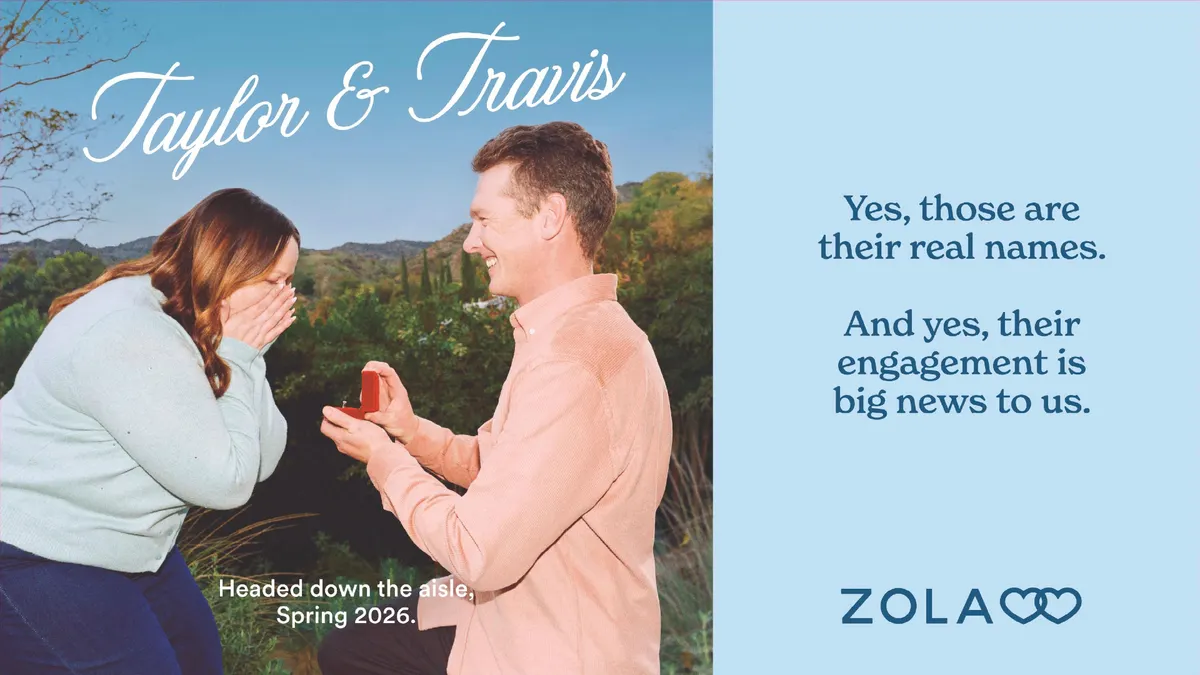After shoemaker Crocs' fourth collaboration with singer Post Malone sold out in two hours, the brand received fan mail last year requesting certain styles of its classic clog for prom, graduation and other special events. In March, people quickly began asking for free pairs they could donate to healthcare workers during long shifts as COVID-19 hit the U.S. The Free Pair for Healthcare initiative soon followed, and in under two months, Crocs had donated 860,000 pairs — valued at $40 million, according to the brand's Head of Global Marketing Heidi Cooley.
"Free Pair for Healthcare at Crocs came to life by listening to our fans. It's actually a muscle that we've created over the past few years," Cooley said during a virtual Advertising Week panel Tuesday. "We had to show up. We had to respond."
By listening to customers at the onset of the coronavirus pandemic, Crocs was able to adapt and spur 52.4% growth in e-commerce revenue in Q2, growth that was also driven by store closures and an uptick in consumer desire for athleisure. E-commerce in the Americas saw triple digit growth, highlighting how a brand that supports its community during tough times can drive real business and spark longer-term loyalty.
Building loyalty like this boils down to nurturing brand love and trust over time, according to panelist Kya Sainsbury-Carter, Microsoft Advertising's vice president of global partner services.
"Companies that lead with purpose are more trusted and more loved. Purpose enables them to endure and even thrive through tough times because it inspires their employees, their communities and their customers," she said. "Purpose allows companies to respond in times of uncertainty with clarity."
Trust is the guiding principle
Even during smoother periods, marketers powered by purpose must focus on responsibility, values and inclusion, Sainsbury-Carter said on the panel, citing a recent Microsoft study that found that 85% of consumers will only consider purchasing from a brand if they trust the brand.
"What we learned is that doing the right thing for our fans is absolutely the right thing for Crocs."

Heidi Cooley
Crocs, head of global marketing
Trust is the guiding principle of Microsoft's latest playbook, titled "Marketing With Purpose" and released Tuesday. It blossoms into loyalty by recognizing people's values and responding in ways that are authentic to a brand. Without it, business performance often suffers, according to Sainsbury-Carter.
However, short-term campaigns to build trust aren't enough, and brands must prove they're trustworthy repeatedly for consumers to believe it.
"Trust is not static," she said.
Demonstrating responsibility, values and inclusion are essential to a brand's core marketing strategy, steering every initiative and advertising campaign that intersect to produce trust, Microsoft's playbook notes. Brands can jumpstart their purposeful marketing programs through delivering accessible, equitable experiences and positive-impact products that are quality and sustainable. Those that take the time to understand their customers' unique values and invest in those insights are often teed up as market leaders, according to Sainsbury-Carter.
Responsibility, values and inclusion
Understanding customers requires brands to think about what they're marketing, who they're trying to reach and how they're doing it. Marketers can generate more personal connections by ensuring the products they're selling and brand they represent are right for their specific audience.
For Crocs, a shoe collaboration with actor and model Ruby Rose during Pride Month this year resulted in rainbow-colored clogs that were designed to reflect Rose's take on LGBT visibility and acceptance and provide funds and advocacy group GLAAD. The effort also helped position Crocs as an inclusivity-minded brand, something brands should be thinking about, Sainsbury-Carter noted on the Advertising Week panel.
"Inclusion is the key to ensuring your advertising properly reflects people and their values in a genuine and authentic way," she said, adding that brands with inclusive marketing are viewed as more trustworthy and more likely to be recommended.
Teaming with Rose on a limited-edition shoe design aligned with Crocs' history of collaborating with artists, influencers and other brands, such as Peeps, KFC and Barneys New York. Rose's efforts around inclusion and equality caught Crocs' attention and fit into the shoemaker's longer-term goals toward purposeful marketing, according to Cooley.
"Every collaboration at Crocs starts with authentic fandom. [Rose] was a fan of our iconic clog long before we ever started working with her," she said. "Our brand manifesto is to 'come as you are,' and that is inherently in her DNA as she advocates for inclusive efforts time and time again."
Rose's collaboration for Pride, coupled with the Free Pair for Healthcare initiative, demonstrates how brands like Crocs can cultivate trust and longer-term loyalty through thoughtful products and a values-based marketing plan.
"What we learned is that doing the right thing for our fans is absolutely the right thing for Crocs," Cooley said.





















